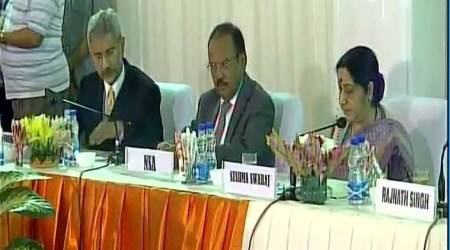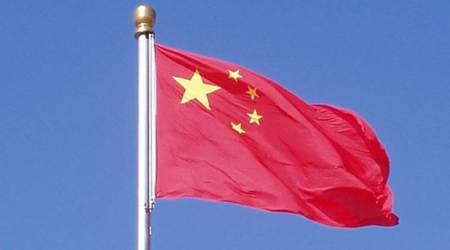 The US diplomats in Beijing got a meeting with the Chinese foreign ministry on July 6, around the time Prime Minister Narendra Modi was in Israel and Chinese President Xi Jinping was in Germany.
The US diplomats in Beijing got a meeting with the Chinese foreign ministry on July 6, around the time Prime Minister Narendra Modi was in Israel and Chinese President Xi Jinping was in Germany.
Donald Trump administration has established contact with New Delhi and Beijing over the last three weeks on the border standoff at Doklam, and has advocated “peaceful resolution” through “dialogue”, sources have told The Sunday Express.
According to sources privy to the exchanges between Washington, Delhi and Beijing, the US Embassy in Beijing asked for a meeting with the Chinese government shortly after the Indian side made its first public statement on the standoff on June 30.
The US diplomats in Beijing got a meeting with the Chinese foreign ministry on July 6, around the time Prime Minister Narendra Modi was in Israel and Chinese President Xi Jinping was in Germany. Modi and Xi met briefly in Hamburg where, according to the MEA, they had a “conversation” on a “range of issues”.
At the July 6 closed-door meeting in Beijing with US diplomats, Chinese officials gave their version of events — just like they briefed other members of P-5 (members of the UN Security Council) and some G-20 member countries, as first reported by The Indian Express earlier this week. Most of these meetings happened separately, at the request of these countries, and there was no joint briefing of Beijing-based diplomats.
Sources said that the message by Chinese officials was the same: they conveyed to US diplomats in Beijing that troops of the People’s Liberation Army (PLA) have been waiting patiently at the Doklam plateau, but will not wait for an indefinite period. China claims this Bhutanese land at the trijunction with India as its own, and calls it Donglong. “The message was the same to diplomats of all countries which sought briefings from the Chinese side,” a source said. Some of these countries briefed Indian diplomats in Beijing and New Delhi on the Chinese foreign ministry’s briefing.
Separately, there have been at least two diplomatic contacts by the US with the Indian government. One was by Acting US Ambassador MaryKay Loss Carlson, who contacted Indian officials in Delhi. And the other was a high-level contact by Washington-based Trump administration officials with the Indian side. Both contacts, sources said, advocated dialogue and peaceful resolution.
Sources said that a similar message was conveyed by the US to Chinese officials in Beijing as well. On Saturday, just five days ahead of National Security Advisor Ajit Doval’s visit to China for the BRICS NSAs’ meeting being hosted by Chinese State Councillor Yang Jiechi on July 27 and 28, Pentagon said that India and China should engage in direct dialogue, free of any “coercive aspects”, to reduce the tension over Doklam.
“We encourage India and China to engage in direct dialogue aimed at reducing tensions and free of any coercive aspects,” Gary Ross, a Defence Department spokesman, told PTI. Asked if the Pentagon fears the tension may escalate between India and China, Ross refused to take sides on the issue. “We refer you to the governments of India and China for further information… We are not going to speculate on such matters,” he said.
The US State Department too has made similar statements over the past week. US State Department spokesperson Heather Nauert told reporters on Friday, “This is a situation that we are following closely and carefully. I’d have to refer you to the governments of India and China for more information on that.”
She said India and China were talking on the issue. “(And) they’re going to talk to one another,” she said, referring to Doval’s visit to China on July 27-28. “We would encourage them to engage in direct dialogue aimed at reducing tensions,” Nauert said.

